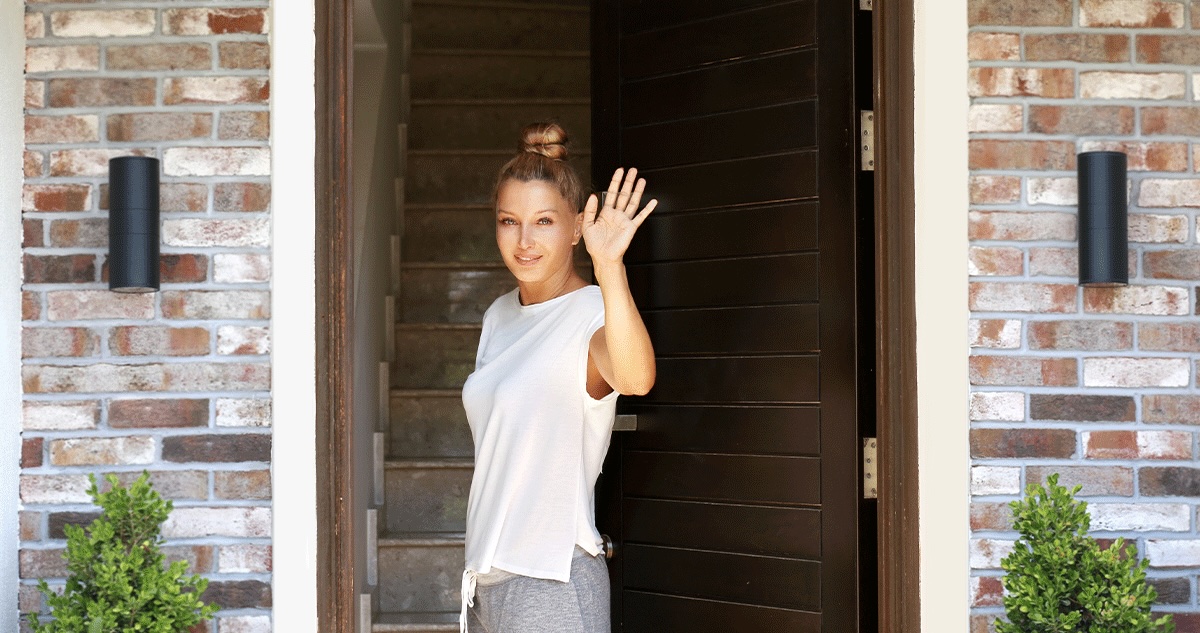
Where I’m from, the “Midwest goodbye” is taught to you from birth. It’s a carefully choreographed dance where a guest announces they’re leaving while inevitably staying another ten minutes to multiple hours. For the uninitiated, I’m told it can feel like you’ve landed on an alien planet of inefficiency, but for a born and bred Midwesterner like me, the opposite is true.
Nothing feels ruder than skipping the Midwest goodbye.
That doesn’t mean that I like this particular tradition. On the contrary, as a neurodivergent introvert, prolonged social gatherings drain me fast. As a guest, I could often find ways to politely excuse myself, but when I started hosting gatherings of my own, it got more difficult. After all, there’s really no polite way to say “get out of my house.”
It wasn’t until the pandemic that I realized just how much this was impacting my relationships. When we could only meet in one another’s homes, the Midwest goodbye became an ongoing, unavoidable problem. I realized I was actually avoiding my loved ones rather than risking hosting something that might drag on well past what I was up for.
Finally, I realized the obvious: I could just tell people when I needed them to leave.
Attempting an “introvert goodbye”
Don’t get me wrong here—abandoning the “Midwest goodbye” went against every instinct I had. The idea of asking someone to get out of my home, let alone actually following through on insisting they do so in a timely manner, felt tantamount to flipping off my closest friends and family. Still, I knew that something needed to change, so I tried it.
I’ve never really been known for my subtlety. Even for me, though, this idea was pretty blunt. When I first suggested it, my friends and I laughed at the innate awkwardness, but I found that they were also eager to give it a go. So, when the night came to a close, I followed through. Then, something truly magical happened.
They left.
Less than five minutes after saying, “Hey, I’m really tired. Mind if we call it a night?” my friends were in their cars driving away.
Honestly, it felt like unlocking a superpower that I never knew I had.
Communicating my needs made a big difference in the energy I had to socialize
I tried it out on other friends and family, and soon, this “introvert goodbye” of mine became a regular occurrence. Every so often I checked in to make sure no one was annoyed by the change, but every time I got the same response—an enthusiastic encouragement to keep doing it.
My loved ones began telling me how much my little experiment in directness had helped them, too. No one had to dance around each other’s feelings or read confusing social cues—we just came out and communicated our needs. When I came to their homes, my friends started using the same method, and I was surprised by just how much more relaxing it was for me as a guest, too. There were no more fears about whether I was overstaying my welcome, and I knew if I needed to leave early, no one was going to mind.
It’s been a few years since I made this change, and it’s remarkable what a difference it’s really made. I invite my friends and family over much more often now, and I spend so much less energy wondering about how (and when) the gathering will end. It gives me more time and space to enjoy the company instead of worrying that I’m misreading confusing social cues.
If you’re interested in trying out an “introvert goodbye” for yourself, here’s how to start:
1. Let the guests or host know at the beginning of the gathering that you plan to use an “introvert goodbye.” Explaining at the start is a way to make it clear that it’s not personal and it’s not because you aren’t having fun—it’s just a way to take care of yourself.
2. Encourage your guests to utilize this method as well, and remind them if necessary that they can declare the visit to be over whenever they need.
3. When it’s time for goodbyes, tell them. You can soften this by reminding them that you love them and you’re having fun, but that the boundary is there so you can protect your energy for hanging out more often. Personally, I tend to take a more blunt approach to keep things light, often saying something like, “Whoops, my social battery died. It’s time.” Whatever you say, remember that the point is to be clear and direct. Dancing around it won’t help anyone.
4. Avoid the trap of the Midwest goodbye any way you can. If you know there will be leftovers, try packing them up directly after the meal instead of waiting for the mass exodus. Gently interrupt any stories that are started on the way out the door, and fight the urge to follow them out. Simply wave, smile and shut the door.
Photo by LADO/Shutterstock




